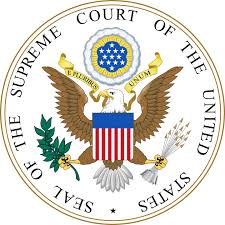 At 10 a.m. Tuesday, the Supreme Court will hold ninety minutes of oral argument on the government’s authority to require private businesses to provide birth control and other pregnancy-related services to their employees under the Affordable Care Act. Arguing for the challengers to the so-called “contraceptive mandate” will be Paul D. Clement, of the Washington, D.C., law firm of Bancroft PLLC. Defending the mandate will be U.S. Solicitor General Donald B. Verrilli, Jr. Each will have forty-five minutes of time, under an order issued Thursday expanding the time beyond the normal amount. The consolidated cases are Sebelius v. Hobby Lobby Stores and Conestoga Wood Specialties Corp. v. Sebelius.
At 10 a.m. Tuesday, the Supreme Court will hold ninety minutes of oral argument on the government’s authority to require private businesses to provide birth control and other pregnancy-related services to their employees under the Affordable Care Act. Arguing for the challengers to the so-called “contraceptive mandate” will be Paul D. Clement, of the Washington, D.C., law firm of Bancroft PLLC. Defending the mandate will be U.S. Solicitor General Donald B. Verrilli, Jr. Each will have forty-five minutes of time, under an order issued Thursday expanding the time beyond the normal amount. The consolidated cases are Sebelius v. Hobby Lobby Stores and Conestoga Wood Specialties Corp. v. Sebelius.
For the first time since the broad new federal health care law partially survived its most sweeping constitutional challenge in the Supreme Court nearly two years ago, the Affordable Care Act comes up for a new test before the Justices. This time, the Court will be examining whether the government may enforce against private businesses owned by religiously devout owners the requirement that employee health plans provide no-cost coverage for women’s pregnancy-related services, including birth control.
These services, required under the so-called “contraceptive mandate” in the Act and in government regulations, are not themselves in legal trouble: the only issue before the Court at this point is which businesses can be ordered to provide the services to their female workers at no cost to them.
That issue will be debated by two of the legal gladiators who met in the last test at the Court of the Affordable Care Act: Washington attorney Paul D. Clement, a former U.S. Solicitor General, and the current Solicitor General, Donald B. Verrilli, Jr.
There probably would be a significant loophole in the contraceptive mandate’s reach if the challengers win. Some women’s rights groups have estimated that millions of women would be affected. Female workers of the two companies involved and those of other religiously oriented companies would have to cover personally the cost of at least some of the birth-control services — unless the government were to set up a new program on its own to do so, which is a very unlikely prospect.
Thus, the two cases that the Court has combined for review set up a direct conflict between the interests of some employers against those of their female workers of child-bearing age. The federal government is clearly on the workers’ side, but the lower federal courts have been divided on who should win.
The dispute only involves private businesses because religious groups, as such, are given an exemption by regulations the government has issued. Even some businesses get exemptions, too, because their employee health plans have been “grandfathered,” but before long those, too, will actually have to provide the benefits at issue, or face heavy financial penalties.
At the level of their greatest potential, the two cases raise the profound cultural question of whether a private, profit-making business organized as a corporation can “exercise” religion and, if it can, how far that is protected from government interference. The question can arise — and does, in these cases — under either the First Amendment’s Free Exercise Clause or under a federal law, the Religious Freedom Restoration Act, passed by Congress in 1993.
To read more about of the preview of the case, visit SCOTUS Blog.








